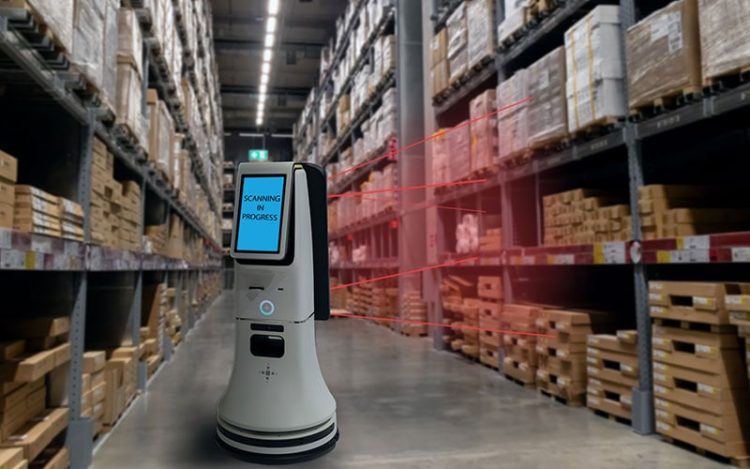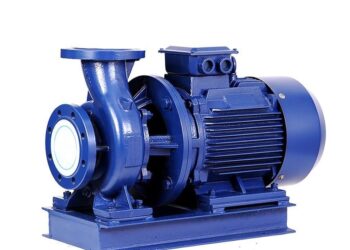Smart warehousing is an integral part of any business. There are many benefits to smart warehouses and how they can help your company, but there are also some risks and drawbacks to every decision you make. This subject will explore everything you need to know about this topic, from the basics up to more advanced concepts and techniques.
Why Smart Warehousing is Important
Smart warehousing is the key to making your business run more efficiently. Here are five reasons why you need to make the switch:
Increased Productivity: Smart warehousing allows you to easily access and manage your products from any location, which leads to increased productivity. You won’t have to waste time looking for product information or coordinating shipping arrangements; all of this can be handled automatically.
Reduced Costs: By using smart warehousing, you can reduce the costs associated with inventory, such as storage space and administrative costs. This will free up money that you can use to invest in other areas of your business, increasing its profitability overall.
Improved Customer Service: When products are stored in a consistent and organized manner, it is much easier to provide top-quality customer service. This is because customers will be able to find what they are looking for quickly and easily, without having to wait for someone else to find it first.
More Flexible Schedules: With smart warehousing, you can easily adapt your scheduling in order to meet the needs of your business. If demand for a product changes unexpectedly, for instance, you can adjust your manufacturing schedule without having
How Smart Warehousing Could Benefit Your Business
A lot has changed in the warehouse industry since the days of manual operations. Warehouses now have to be automated to keep up with the ever-changing demands of today’s businesses. But what happens when these warehouses need to be downsized or when a new business model emerges that requires a different type of warehouse? The answer is smart warehousing.
Smart warehousing is a warehouse management technology that uses sensors and software to monitor and optimize the environment in which goods are stored. This system can automatically optimize shelving, temperature, humidity, and light levels to ensure optimal storage conditions for products. As a result, you can reduce your operating costs and improve your efficiency.
Benefits of using smart warehousing
When can reduce your operating costs by reducing inventory levels and automating processes such as stocking and unloading. You can improve your efficiency by using real-time data to make intelligent decisions about warehouse layout and operations.
You can achieve improved quality control by monitoring product conditions throughout the supply chain.
Types of Smart Warehousing Systems
Smart warehousing systems are becoming more and more important for businesses of all sizes. Here are some of the benefits of using a smart warehouse system:
Increased Efficiency and Productivity: A smart warehouse system allows businesses to streamline their processes and workflows, resulting in increased efficiency and productivity. This can lead to reduced costs, improved customer service, and increased profits.
Increased Capacity: A smart warehouse system can help businesses increase their storage capacity, allowing them to handle increasing demand without having to invest in additional infrastructure or staff. This can lead to faster turnaround times and increased sales.
Improved Data Management: A smart warehouse system allows businesses to capture and manage data in real-time, allowing them to make better decisions based on current information. This can improve overall business efficiency and performance.
Reduced Risk: A smart warehouse system can help reduce the risk associated with inventory management by automating many of the processes involved in managing inventory. This can reduce the chances of errors or injuries, as well as save time and money in the long run.
How to Implement a Smart Warehouse System
The warehouse is one of the most important departments in any business. It’s responsible for storing, handling and distributing products to customers. But in order to run a successful warehouse, you need a smart system. A smart warehouse system can help you optimize your storage and distribution processes, saving you time and money. Here are six ways a smart warehouse system can help your business:
Keep Track of Inventory Levels and Location: A smart warehouse system can track inventory levels and location throughout the store. This information can help you make informed decisions about which products to order and where to store them.
Speed Up Delivery Times: A smart warehouse system can speed up delivery times by keeping track of when products are ordered and delivered to the store. This information can be used to plan deliveries accordingly so that products arrive at the store on time.
Automate Order Processing: A smart warehouse system can automate order processing, including tracking orders as they move through the warehousing & distribution process. This information can be used to make better decisions about product specifications and ordering quantities.
Improve Customer Service: With improved tracking of customer orders, a smart warehouse system can improve customer service by routing customers’ orders quickly
Transportation management system
One of the biggest benefits to implementing a transportation management system (TMS) is its ability to optimize your freight movement. By having an organized system in place, you can ensure that your shipments are delivered on-time and in the right quantity. A TMS also helps you keep track of where your products are at all times, making it easier to manage inventory and optimize production. The following are five reasons why you should invest in a TMS for your business:
Reduced cargo congestion and delays: A TMS can help you avoid Cargo congestion or delays by tracking the whereabouts of your product from order to delivery. This information can be used to plan routes and optimize truckload shipments according to demand.
Improved safety: A TMS can help you monitor transportation conditions, which can improve safety on the road by reducing accidents and preventing shipping damage. It can also help identify potential problems before they arise, saving time and money on repairs.
Increased accuracy and efficiency: By using GPS tracking, a TMS can provide accurate arrival times for your orders, minimizing wasted time and fuel costs while ensuring that products are delivered on-time. Smart warehousing is one of the most important aspects of a successful business. It allows businesses to streamline their operations and make better decisions. With a transportation management system, businesses can track shipments and inventory more efficiently. Additionally, a transportation management system can help prevent stockouts and ensure that products are delivered on time.
Conclusion
When you’re like most business owners, you’re probably always looking for ways to improve your business operations. One important way to do that is by implementing smart warehousing, which can help you streamline your processes and make better use of your resources. By taking the time to learn about and implement smart warehousing in your business, you can ensure that you’re getting the most out of every dollar spent on inventory, shipping materials, and office space.

















